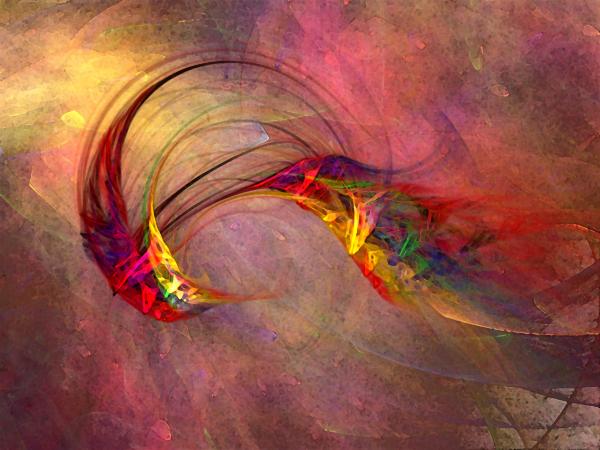Seraphine's
thoughtful post over at
Zelophehad's Daughters has gotten me thinking about community. Specifically about the potential for community within the LDS church. And, even more specifically, the possibility of finding community for myself in the LDS church.
I believe very much that the gospel of Christ is a communal thing. My understanding of God is rooted in community and interconnectedness. To the extent that I accept the Atonement, I understand it as a communal act--both Christ's act as communal and my willingness to act in light of the Atonement as communal. I'll explore some of these ideas in more depth at a future date.
My question today has more to do with the possible reality of church community than to do with ideals or theories of the gospel and community. And here is my question: How, when I find so very many differences between myself and many other Mormons, how can I find community in their midst?
Perhaps it's not fair of me, but I have a stereotype of a Mormon in my head. You're probably familiar with that stereotype if you're familiar with Mormon culture at all. Fairly conservative in dress; fairly conservative in political, social, and cultural beliefs; dedicated to family; dedicated to church; men work while women mother; opposed to "alternative" lifestyles, whether as simple as being tattooed and pierced or as significant as one's sexuality; rather orthodox religious belief, accepting the teachings of the church; etc., etc. You get the general picture. Although I know exceptions to that rule, my experience at church is that most Mormons conform to the stereotype in most ways--even if they have a little nonconformity here and there.
The problem for me is that I have a lot of nonconformity. I'm liberal. I'm feminist. I accept just about any lifestyle you could imagine. I think clothing is rather unimportant. I mean, I like clothing and dress nicely; but I don't give a tinker's damn about how anyone else dresses and I think dress codes are stupid. I adore my family and I want a family, but I have unconventional ideas of what constitutes a family. For instance, I see no reason why a family must have two parents or must have two parents of the opposite sex. I also think that we build families not only through marriage and having children, but also through friendship. And I wouldn't hesitate to either adopt or be artificially inseminated so that I can have children if I remain single.
And when it comes to church teachings and doctrine, I'm rather heterdox. I don't really care about the literal nature of any of the teachings of the church. God, Joseph Smith's vision, the Book of Mormon's historicity. Even Jesus. What's important to me is not the literal reality of any historical teaching of the church, but rather the principles taught by these stories. I have my own peculiar understanding of the temple (and I both passionately love and hate the temple). I believe my own personal relationship with God trumps prophetic counsel every time. I think the commandments are more suggestions and generally good ideas than absolute rules. I suppose, were I pressed to label myself, I'd identify as something of a humanist with a slight affinity for Christianity.
Back to the question of community. When I am that different from the Mormon norm, is it possible for me to find community at church? On one level, I suppose it is. Simply participating in church meetings, making myself available to serve in callings, speaking in classes, etc. makes me a member of a community. But at the same time, I feel distant from the members of my ward. I feel little sympathy between them and me. Largely because the climate in the church is one which discourages honest sharing of unorthodox ideas and interpretations. Were that not so, I may be able to find a more genuine community at church--one which helped feed me spiritually rather than leaving me to grasp at crumbs. Maybe I am selfish, but I don't want to simply eat the crumbs that fall to the floor; I want to participate in the feast. And I see the potential for such wonderful feasting at the table of Christ's gospel, if only everyone were allowed a seat.
So I find myself sitting rather isolated in church, feeling alone and without recourse to reach out to those around me. Because I know that no matter how sincerely they express concern, they cannot understand the workings of my mind. Not because my mind is superior; far from it. Only because my mind and my soul are different. Is there something wrong with me causing me not to find the community Seraphine found in her moment of vulnerability? Is it simply that I am unwilling to make myself vulnerable? I have made myself vulnerable in the past and I have been burned. Badly. So perhaps I am simply gun shy. I don't honestly know.
In the meantime I look for community elsewhere: among nonbelievers and fringe members of the church; online at Mormon blogs; in social networks unaffiliated with the church. And I wish that somehow the church could be a big enough community to allow people of openly different understandings to feast at the same table.



